
In World War Two, the Polish armed forces were the fourth largest Allied forces in Europe, after those of the Soviet Union, United States, and Britain. Poles made substantial contributions to the Allied effort throughout the war, fighting on land, sea, and in the air.

Prince Adam Stefan Stanisław Bonifacy Józef Cardinal Sapieha was a senior-ranking Polish prelate of the Catholic Church who served as Archbishop of Kraków from 1911 to 1951. Between 1922 and 1923, he was a senator of the Second Polish Republic. In 1946, Pope Pius XII created him a Cardinal.

A Treaty of Perpetual Peace between the Tsardom of Russia and the Polish–Lithuanian Commonwealth was signed on 6 May 1686 in Moscow by Polish–Lithuanian Commonwealth envoys: voivod of Poznań Krzysztof Grzymułtowski and chancellor (kanclerz) of Lithuania Marcjan Ogiński and Russian knyaz Vasily Vasilyevich Golitsyn. These parties were incited to cooperate after a major geopolitical intervention in Ukraine on the part of the Ottoman Empire.

Cyryl Ratajski was a Polish politician and lawyer.
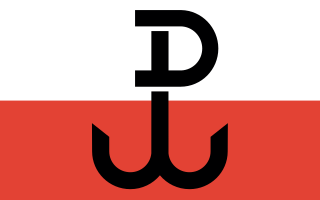
The Polish Underground State was a single political and military entity formed by the union of resistance organizations in occupied Poland that were loyal to the Government of the Republic of Poland in exile in London. The first elements of the Underground State were established in the final days of the German and Soviet invasion of Poland, in late September 1939. The Underground State was perceived by supporters as a legal continuation of the pre-war Republic of Poland that waged an armed struggle against the country's occupying powers: Nazi Germany and the Soviet Union. The Underground State encompassed not only military resistance, one of the largest in the world, but also civilian structures, such as justice, education, culture and social services.

The Lwów uprising was an armed insurrection by the Home Army underground forces of the Polish resistance movement in World War II against the Nazi German occupation of the city of Lviv in the latter stages of World War II. It began on 23 July 1944 as part of a secret plan to launch the countrywide all-national uprising codenamed Operation Tempest ahead of the Soviet advance on the Eastern Front. The Lwów uprising lasted until 27 July. Shortly afterwards, the Polish troops were disarmed, officers were arrested by the Soviet NKVD and ordinary soldiers either arrested or conscripted into the Soviet-created and controlled People’s Army of Poland (LWP) under Red Army command. Some were forced to join the Red Army, others sent to the Gulag camps. The city itself was occupied by the Soviet Union.
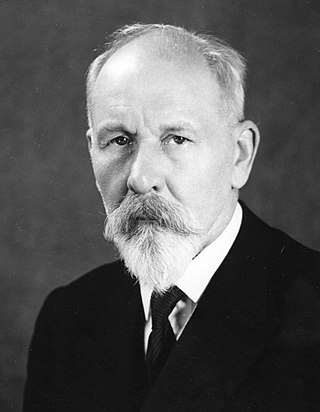
Tomasz Stefan Arciszewski was a Polish socialist politician, a member of the Polish Socialist Party and the 31st Prime Minister of Poland, 3rd Prime Minister of the Polish government-in-exile in London from 1944 to 1947 during which the government lost the recognition of the Western powers.

Kornel Makuszyński was a Polish writer of children's and youth literature. He was an elected member of the prestigious Polish Academy of Literature in the interwar Poland.

In Poland, the resistance movement during World War II was led by the Home Army. The Polish resistance is notable among others for disrupting German supply lines to the Eastern Front, and providing intelligence reports to the British intelligence agencies. It was a part of the Polish Underground State.
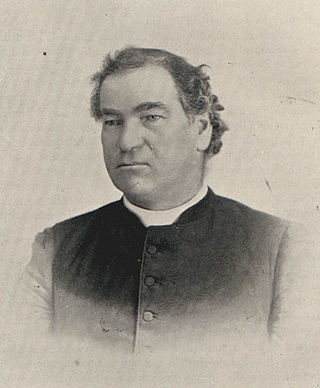
Rev. Jan Pitass was a Polish priest who was the founder and first pastor of the oldest Polish parish in the diocese of Buffalo, New York. He was a graduate of Niagara University before moving to Buffalo.
The Constitution of the Kingdom of Poland was granted to the 'Congress' Kingdom of Poland by King of Poland Alexander I of Russia in 1815, who was obliged to issue a constitution to the newly recreated Polish state under his domain as specified by the Congress of Vienna. It was considered among the most liberal constitutions of its time; however, it was never fully respected by the government. It was modified during the November Uprising by the revolutionary government and discarded afterwards by the victorious Russian authorities in 1832.
Polish culture during World War II was suppressed by the occupying powers of Nazi Germany and the Soviet Union, both of whom were hostile to Poland's people and cultural heritage. Policies aimed at cultural genocide resulted in the deaths of thousands of scholars and artists, and the theft and destruction of innumerable cultural artifacts. ''The maltreatment of the Poles was one of many ways in which the Nazi and Soviet regimes had grown to resemble one another", wrote British historian Niall Ferguson.
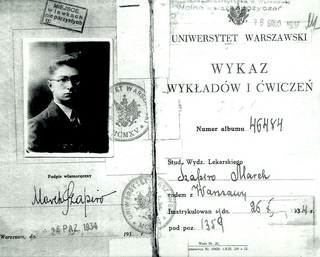
Ghetto benches was a form of official segregation in the seating of university students, introduced in 1935 at the Lwów Polytechnic. Rectors at other higher education institutions in the Second Polish Republic had adopted this form of segregation when the practice became conditionally legalized by 1937. Under the ghetto ławkowe system, Jewish university students were required under threat of expulsion to sit in a left-hand side section of the lecture halls reserved exclusively for them. This official policy of enforced segregation was often accompanied by acts of violence directed against Jewish students by members of the ONR.
The Front Morges was a political alliance of centrist political parties of interbellum Poland. It was founded in 1936 in the Swiss village of Morges by General Władysław Sikorski and former Polish Prime Minister Ignacy Paderewski.
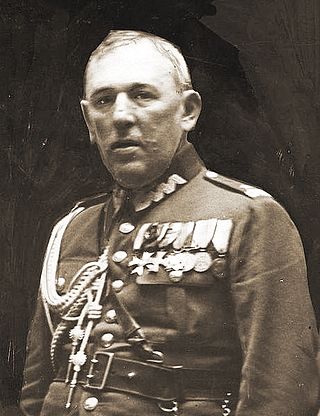
Bernard Stanisław Mond (Spanier) was a Polish general of Jewish descent in the interwar period. He fought in the First World War, Polish–Ukrainian War, Polish–Soviet War and Second World War.

Mieczysław Norwid-Neugebauer was a minister in the interwar Polish government, and a lieutenant general in the Polish Army.

Col. Czesław Mączyński was a Polish officer, politician in the Second Polish Republic, and the Commander-in-chief of the Polish military contingent during the defense of Lwów – also called the Battle of Lemberg – throughout November 1918, as well as the Polish–Soviet War of 1920. He was the recipient of some of the highest Polish military awards including Virtuti Militari, and a subject of the 2004 monograph by Jacek Miliński from University of Łódź.
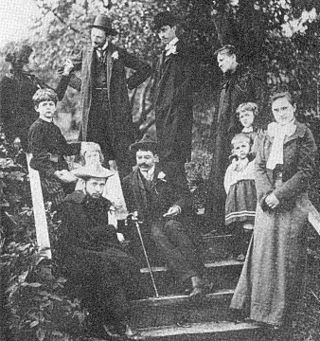
Ostap Ortwin was a Polish Jewish journalist and literary critic.

Aleksander Wacław Ładoś [alɛ'ksandɛr 'wadoɕ] was a Polish politician and diplomat, who 1940–45 headed the Legation of Poland to Switzerland. Ładoś was a member and de facto leader of the Ładoś Group, also known as Bernese Group, a secret action by the Polish diplomats and Jewish organizations who helped save several hundred Jews from the Holocaust by providing them with illegal Latin American, mostly Paraguayan passports.
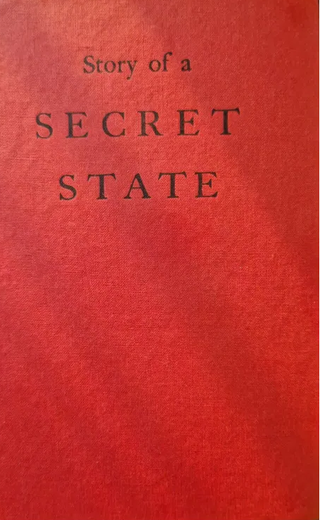
Story of a Secret State is a 1944 book by Polish resistance Home Army courier Jan Karski. First published in the United States in 1944, it narrates Karski's experiences with the Polish Resistance, and it is also one of the first book accounts of the German occupation of Poland, including the Holocaust in Poland.


















